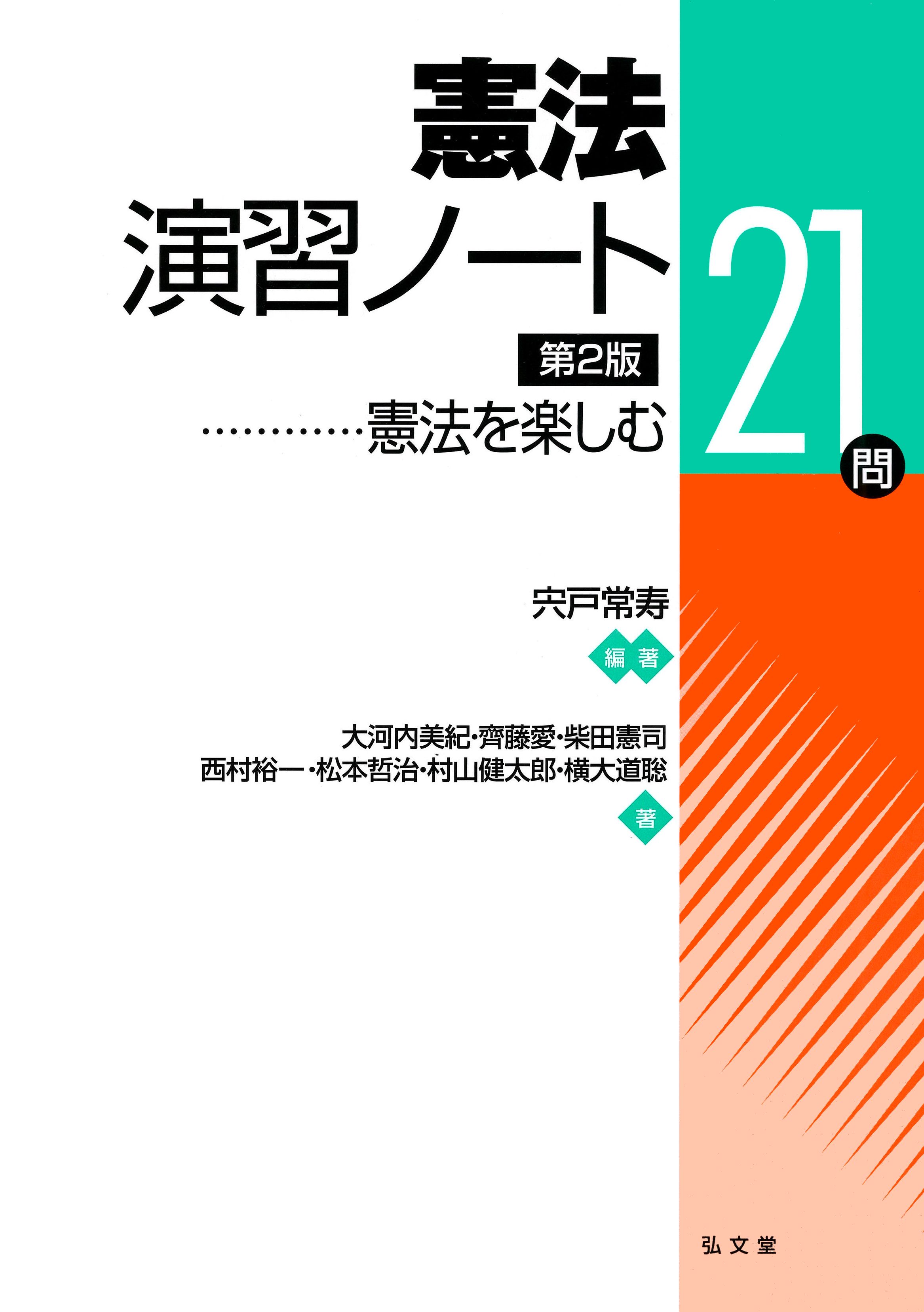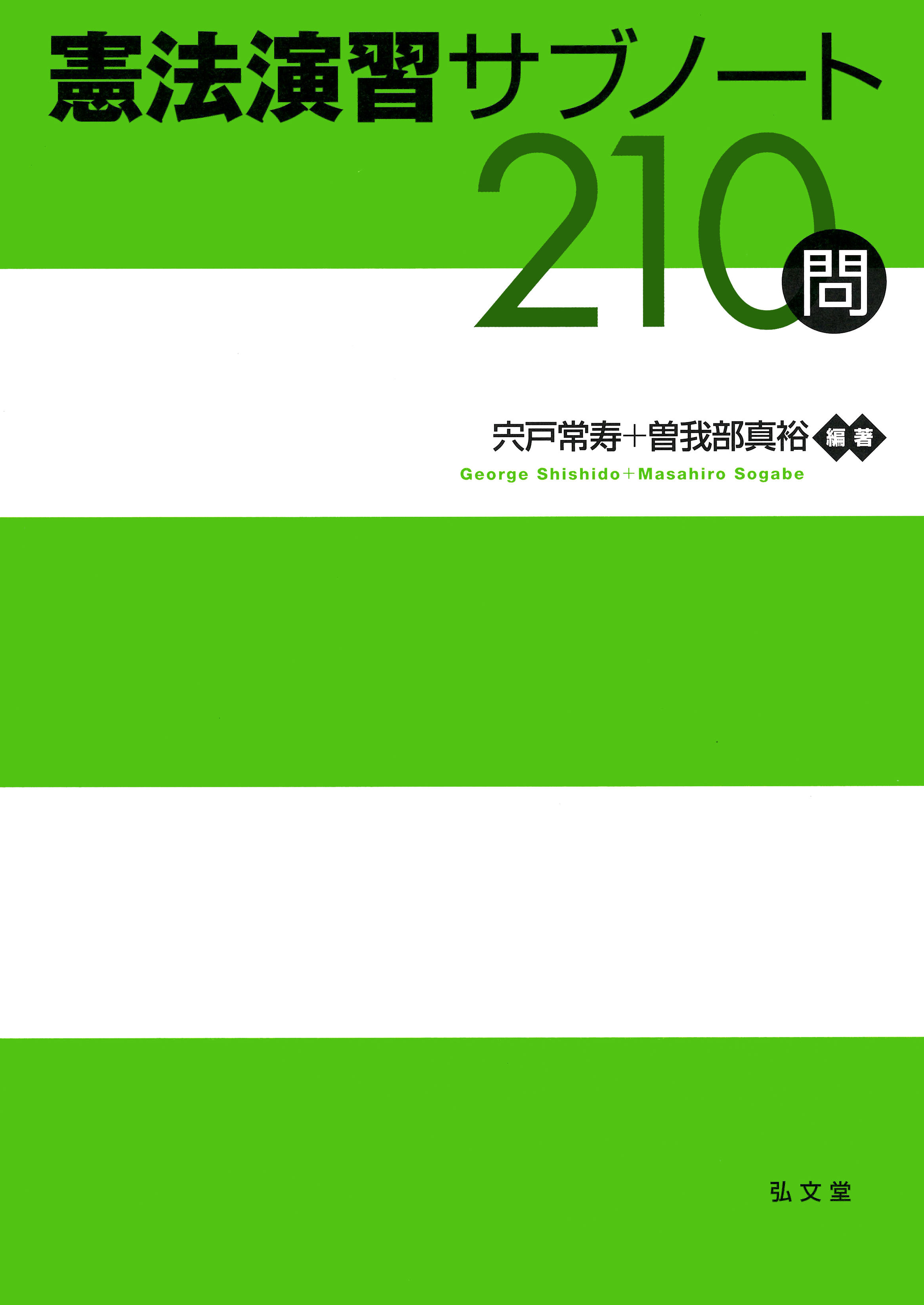
Title
Practice Note Series Kenpo-Enshu Note (Constitution Practice Note - Second Edition)
Size
466 pages, A5 format, softcover
Language
Japanese
Released
April, 2020
ISBN
978-4-335-35825-8
Published by
KOUBUNDOU
Book Info
See Book Availability at Library
Japanese Page
Before you read the introduction, let me tell you the titles of the chapters that I oversaw. Can you guess what kinds of things are written in them?
“It’s Tough to be Men Too”
“The Racoon Dog Judge”
This book is part of the “Practice Note Series,” the entries in which are highly rated as teaching aids for essay-based examinations concerning the law, such as the National Bar Exam. There are many who wonder how learning is measured in legal studies, or to put it more clearly, what legal examinations are like, so I want to introduce them to you briefly.
There is a misconception that in Faculties of Law students are made to memorize thick Statute Books (I have heard that high school teachers tell students this to dissuade them from studying law in university. This is a terrible shame). Even the best legal practitioners cannot completely memorize all or most of law. Rather, in lectures given by members of Faculties of Law, as well as teaching basic concepts and principles, we train powers of thought and application so that students may be able to decide how to leverage them to solve the ever-changing conflicts of life. Correspondingly, not only final exams in Faculties of Law but also entrance ones for Law Schools, and even the Bar Exam, we present students specific fictitious cases that they have never seen before, and generally ask them for an answer in the form of cohesive discourse.
The preamble was quite long, but practical legal studies workbooks, including this one, introduce specific case studies and the texts, precedents, theories etc., and explain the points that should be considered. How well the case studies are is what makes or breaks these books of exercises (and exam questions in general).
The “Practice Note Series” features narrative long-form case studies, and through a process that attempts to provide answers to readers, it contains aspects that ensure readers will gain insights into the basic knowledge surrounding legal studies that they have learned in textbooks and classes. In this book, we, the constitutional scholars from the same generation, engaged in continuous debate decided on the questions and created the fictious cases based on famous judicial precedents. Reflecting on it now, we indulged too much in modeling fictional characters and conversations.
Of course, the explanations are based on understandings of orthodox case law and theory, with the details offered to appropriately resolve conflict, and with students in mind. While educators in Faculties of Law do not really want to do it, we tried to show how to present a sample of “answer” --- a legal document that, while being logical, integrates a range of values and persuasively demonstrates a reasonable conclusion (not “the right answer”).
If you are at all interested, I would encourage you to look at the conflicts raised in chapters such as “It’s Tough to be Men Too” and “The Racoon Dog Judge,” as well as how these issues are framed in terms of constitutional law. And for students who are confident in their aptitude, I want you to evaluate “the answers” that we have offered in the book.
(Written by SHISHIDO George, Professor, Graduate Schools for Law and Politics / 2021)



 Find a book
Find a book


